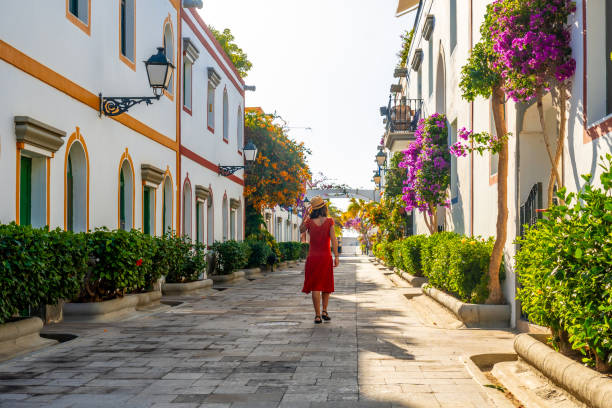Spain’s vibrant landscapes, rich culture, and timeless architecture make it a dream destination for travel photographers. From the orange-tinted alleys of Seville to the surreal works of Gaudí in Barcelona, there’s no shortage of visual inspiration. But for those capturing high-resolution RAW files, storage and backup planning become essential. Connectivity also plays a major role, especially with tools like a Spain prepaid eSIM, which allows photographers to sync, back up, and share images on the go without juggling physical SIM cards or chasing public Wi-Fi.
Travel Photography Means Traveling With Data
Traveling through Spain with a professional or even semi-professional camera setup often means working with large file sizes. A single RAW image can range from 20MB to 100MB or more, and capturing hundreds per day quickly fills memory cards. Photographers who rely solely on physical storage devices are at risk of data loss if theft, damage, or formatting errors occur.
Using an eSIM, travelers can ensure they’re always connected to the cloud. This means uploading files to services like Dropbox, Google Drive, or Adobe Cloud even while in transit. Whether you’re editing on a train from Madrid to Valencia or shooting street art in Málaga, staying online helps secure your work in real-time.
Using Cloud Services to Stay Organized
Backing up images during a digital photo tour isn’t just about storage—it’s also about file management. With cloud storage apps, travelers can create folders by location, date, or subject and upload directly from their devices. This reduces clutter and makes retrieval easier once the trip is over.
The benefit of a digital SIM is consistent, uninterrupted access to these services. Photographers don’t need to wait until they’re back at the hotel or find a café with Wi-Fi. Immediate upload and sorting become part of the daily workflow, streamlining post-processing once you return home.
Tethering and Mobile Hotspots for Group Editing
Many photography tours in Spain include group sessions where participants review their shots together, share techniques, or get guidance from mentors. When everyone brings their laptops or tablets, reliable internet becomes a shared need.
With an eSIM-enabled smartphone, photographers can easily set up a personal hotspot for tethering. This means no scrambling for poor hotel Wi-Fi or dealing with overloaded public networks. An eSIM provides the flexibility to establish a secure and fast connection wherever your team meets—on a vineyard, in a plaza, or along the coast.

On-the-Go Editing With Cloud Access
Many photographers now use tablets, such as iPads or lightweight laptops, for on-the-go editing. Apps like Lightroom Mobile or Capture One allow professionals to begin color grading, culling, or applying presets while still in the field.
Access to cloud-stored files via your virtual SIM makes this workflow seamless. You can retrieve photos shot earlier in the day or even access reference materials while editing on a hillside or waiting for golden hour at the Alhambra. The flexibility of mobile editing reduces the burden of catching up at the end of the tour, providing more room for experimentation during the trip.
Backing Up With Physical Devices: Still Necessary
While cloud storage is ideal, it’s not always the only backup solution travelers should rely on. External SSDs and memory card readers are still useful, especially in areas with spotty coverage or for those who shoot in extremely high volumes. However, these should be seen as complementary, not sole solutions.
When paired with eSIM connectivity, physical backups offer dual protection. You can create a local backup in the evening while simultaneously uploading files to the cloud. This layered approach ensures that your work remains safe, regardless of what happens during your travels.
Staying Connected While Moving Between Cities
Spain’s high-speed rail system, regional buses, and scenic drives provide many options for exploring the country. However, photographers often face challenges when trying to sync files or access stored images while traveling.
A Spain prepaid eSIM ensures connectivity doesn’t end when you leave a city. Whether you’re on a train to Zaragoza or in a rental car heading to the Picos de Europa, eSIMs eliminate downtime and help you continue your workflow without delay. It’s particularly useful when unexpected opportunities arise and you need to upload a quick edit to social media or send files to clients during a trip.
Peace of Mind While Exploring Off the Grid
Not all Spanish landscapes come with Wi-Fi signals. National parks, rural villages, and coastal cliffs may be stunning, but also disconnected. Having an eSIM ensures you’re still reachable in emergencies and can share your location or upload low-res previews if needed.
Knowing that your files are already backed up or syncing in the background provides peace of mind. It lets you focus on what matters—capturing that fleeting sunset or street scene—without worrying about losing it later.
Conclusion
A photo tour across Spain isn’t just a vacation—it’s a creative mission. For photographers, safeguarding their work is just as important as the images themselves. A Spanish prepaid eSIM becomes more than a digital convenience; it’s a silent travel companion that ensures your photos, your process, and your connection to the world stay intact. Whether you’re on a cobbled street in Toledo or a clifftop in Costa Brava, the freedom to create without limits is worth every megabyte.
Is It OK to Buy a Used NAS? (RAID Room)
Do You NEED 5GbE NAS? (Or Should You Skip Ahead to 10GbE)
UGREEN DXP4800 PRO NAS Review
Minisforum G7 Pro Review
CAN YOU TRUST UNIFI REVIEWS? Let's Discuss Reviewing UniFi...
WHERE IS SYNOLOGY DSM 8? and DO YOU CARE? (RAID Room)
Access content via Patreon or KO-FI
Discover more from NAS Compares
Subscribe to get the latest posts sent to your email.





DISCUSS with others your opinion about this subject.
ASK questions to NAS community
SHARE more details what you have found on this subject
IMPROVE this niche ecosystem, let us know what to change/fix on this site